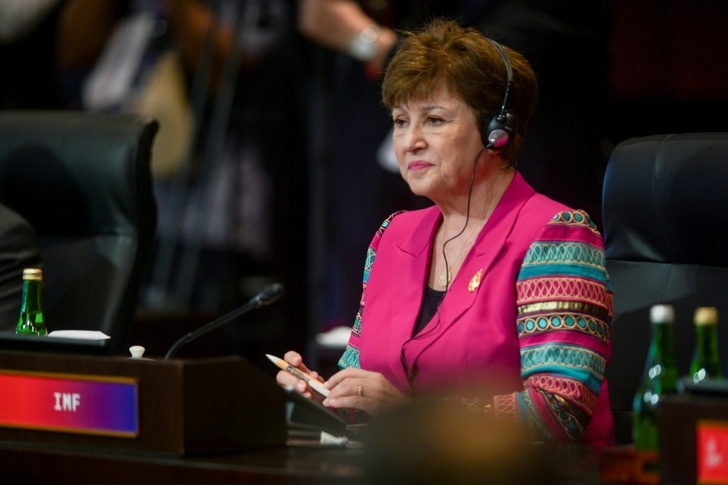A lower growth forecast is "very likely" for China this year and next, with easing Covid-19 restrictions expected to bring a surge in infections and temporary difficulties, IMF chief Kristalina Georgieva told AFP Tuesday.
Her comments on the sidelines of a panel about a newly-created IMF fund come as the world's second biggest economy grapples with soaring coronavirus cases, as it loosens virus controls after nearly three years.
While China's zero-Covid policy has battered its economy, "the easing of restrictions is going to create some difficulties over the next months" as well, Georgieva said.
This is because a spike in infections will be inevitable, with more people temporarily unable to participate in the labor force.
"But it is likely that as China overcomes this in the second half of the year, there could be some improvement in growth prospects," she said.
The zero-Covid policy, characterized by snap lockdowns, international travel restrictions and mass testing, took a heavy toll on consumers and businesses, with demonstrations against the measures eventually erupting in major Chinese cities.
The IMF earlier warned that tough virus restrictions have been especially hard on China's residents.
Chinese officials said Monday that Covid cases are surging in Beijing, with a sharp spike in people visiting hospitals across the capital city. Rising infections in smaller cities were also discussed on social media.
The fund cut its growth projection for China in October to 3.2 percent this year -- the lowest in decades -- while expecting growth to rise to 4.4 percent next year.
But "very likely, we will be downgrading our growth projections for China, both for 2022 and for 2023," Georgieva said.
- Adjusting policy -
For now, the country has to adjust its Covid policy, such as by being more targeted with restrictions and boosting vaccinations, especially to elderly populations. There is also a need to use more antiviral treatments, Georgieva added.
"In other words, retool the health system towards treating people rather than isolating, which has been the case for the last years," she said.
Global economic leaders last week hailed China's move away from its hardline virus strategy, with hopes that relaxation would also help to shore up a world economy struggling with fallout from the pandemic and Russia's invasion of Ukraine.
With 2023 set to be a "very difficult year" as well, Georgieva reiterated that the likelihood of further downgrades in IMF growth projections will be "high."
Apart from challenges in China, the US and European Union are also expected to slow simultaneously, with projections for half of the European Union to be in recession next year, she said.
While Washington-based fund earlier said there was a one-in-four chance global growth would fall below two percent next year, Georgieva added Tuesday that this probability has gone up.
bys/dw
© Agence France-Presse
Your content is great. However, if any of the content contained herein violates any rights of yours, including those of copyright, please contact us immediately by e-mail at media[@]kissrpr.com.
Source: Story.KISSPR.com

